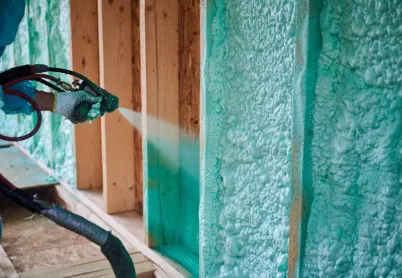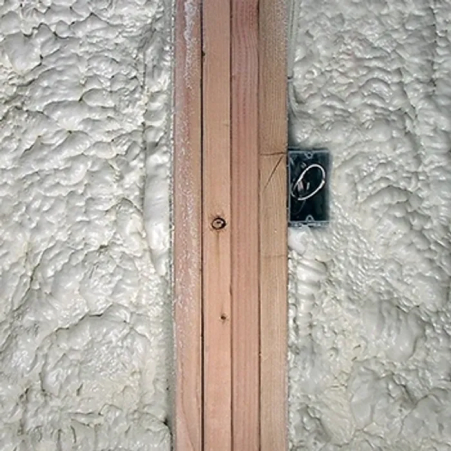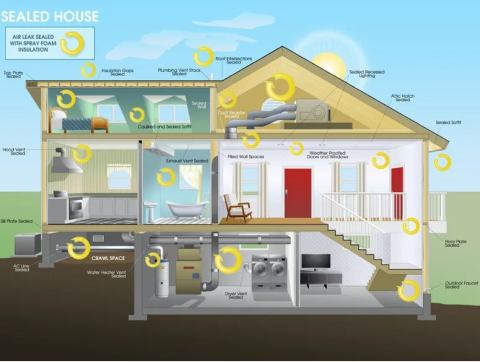Spray Foam Insulation
Improve the comfort of your house
Spray Foam Insulation is a distinct insulation and sealing substance. The product is used on-site, conforming to the surface to which it is applied while the tight building envelope produced by this application procedure increases energy efficiency.
Spray foam is adaptable and can be used to cover wall cavities, exterior walls, attics, crawl spaces, and little gaps and cracks all around a house. Spray foam solutions can reduce air infiltration and air movement throughout the house, which lowers energy consumption, reduces the entry of allergens and pollutants, and improves the comfort of the house.





